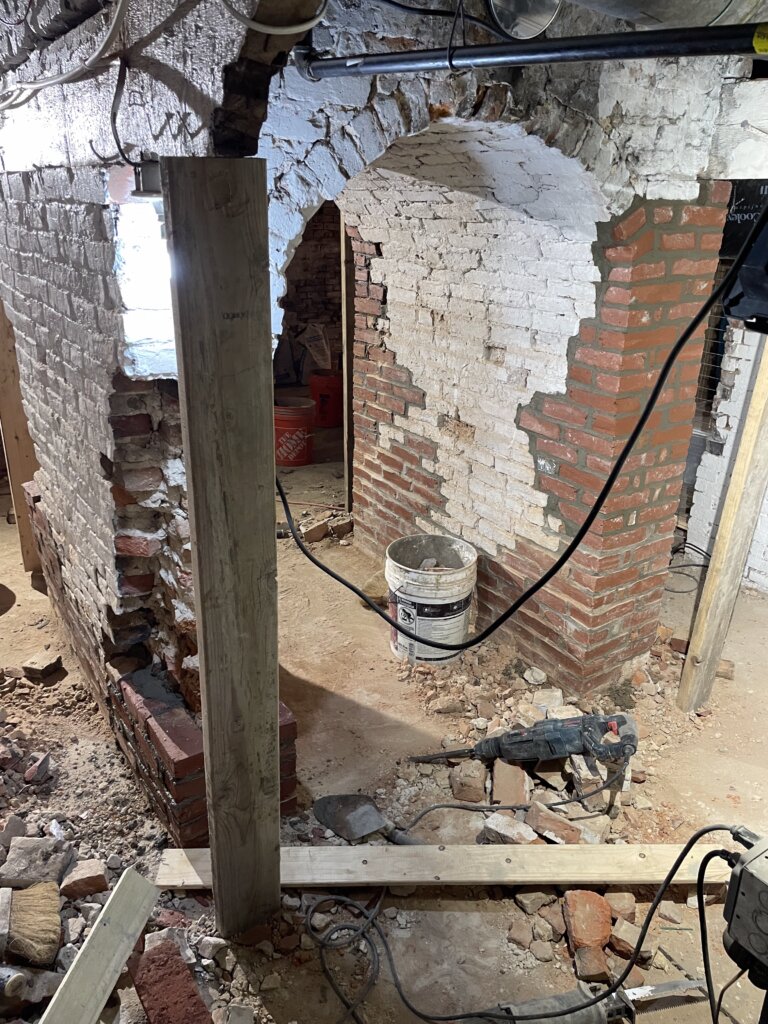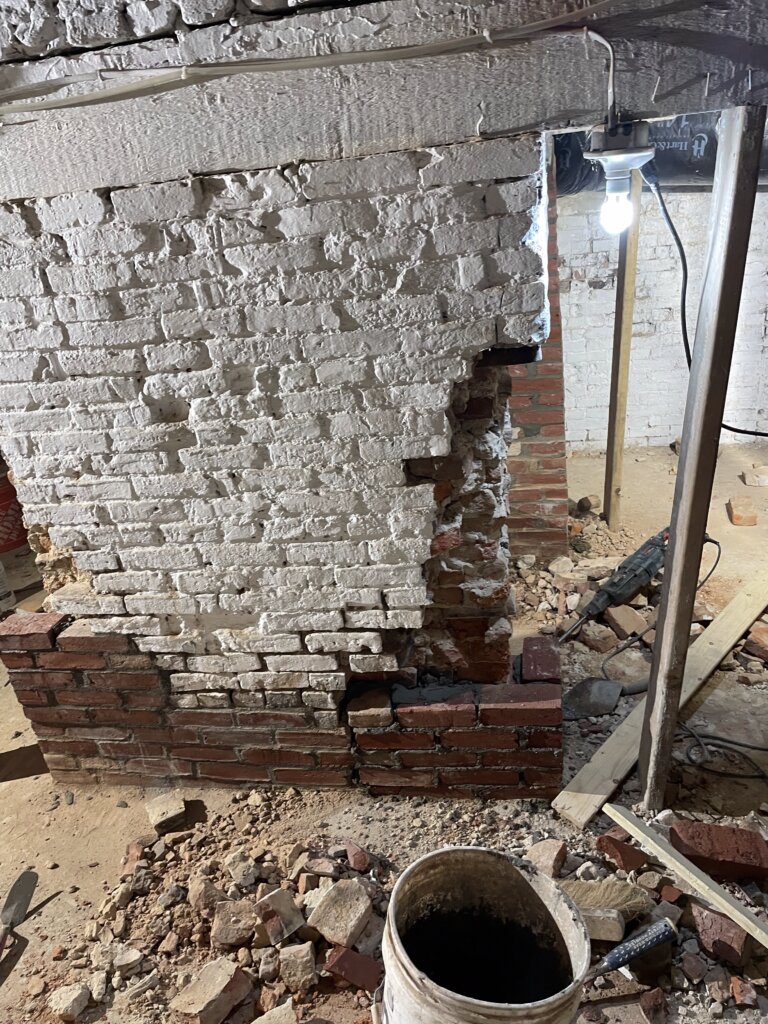
Buying a house is one of the most significant investments you’ll make in your lifetime. When considering a home in Boston, it’s crucial to evaluate the condition of the property thoroughly. One major concern that potential buyers often face is the integrity of the home’s foundation. Foundation problems can range from minor cracks to severe structural issues, and understanding these can make or break your decision. In this guide, we’ll explore whether you should consider buying a house with foundation issues, helping you make an informed choice in the Boston real estate market.
Understanding Foundation Repairs
When buying a house with foundation issues, it’s essential to understand what foundation repairs entail. Foundation problems in Boston can arise due to various factors, such as soil composition and weather conditions. Common foundation issues include cracks, settling, and bowing walls. Addressing these issues promptly is crucial to prevent further damage. Foundation repairs often involve techniques such as underpinning, slab jacking, or sealing cracks, depending on the severity of the problem. A professional inspection is vital to determine the best course of action for any foundation repairs when buying a house with foundation problems.
Foundation problems can be a major concern for potential homeowners, often leading to major problems such as uneven floors, cracked walls, and doors or windows that won’t close properly. These issues not only affect the safety and comfort of living in the house but can also diminish its market value and make future resale more challenging.
However, buying a house with foundation repair isn’t necessarily a deal-breaker. Foundation repairs, when done correctly, can restore the structural integrity of a home and prevent further damage. It is essential to understand the extent of the repair work, the quality of the repair, and any warranties or guarantees provided by the contractors.
Should I Buy a House With Foundation Repair?
Buying a house with foundation repair needs can be a wise investment or a potential risk, depending on various factors. The primary considerations should be the severity of the foundation issues, the cost and quality of the necessary repairs, and the long-term implications for the property.
If the problems are minor and can be fixed to ensure the foundation’s stability, purchasing such a house might be advantageous, especially if you can negotiate a lower purchase price. However, if the issues are severe and the repairs are extensive and costly, it may be wiser to look for another property. Always consult with a structural engineer or concrete contractor to get a professional assessment before making a decision.
Pros and Cons of Buying a House With Foundation Repair
When considering the purchase of a house with foundation issues, it is essential to weigh the potential benefits and drawbacks. Here are some key points to consider:
Pros of Buying a House With Foundation Repair:
Potential for Lower Purchase Price:
One of the most significant advantages of buying a house with foundation problems is the possibility of acquiring the property at a reduced price. Sellers are often willing to lower the asking price to compensate for the necessary repairs. This can result in substantial savings for the buyer, which can be used towards the cost of repairs or other home improvements.
Opportunity to Customize Repairs:
Purchasing a home that requires foundation repair allows the buyer to oversee the repair process and ensure that the work is done to their standards. This control over the quality of repairs can provide peace of mind and potentially add value to the property.
Possibility of Negotiating Terms with the Seller:
When buying a house with foundation issues, there may be opportunities to negotiate favorable terms with the seller. This could include the seller covering some or all of the repair costs, or providing additional concessions to make the deal more attractive.
Cons of Buying a House With Foundation Repair:
Cost of Repairs:
One of the most significant drawbacks of buying a house with foundation problems is the potential cost of repairs. Foundation repair costs can vary significantly based on the extent of the damage and the type of foundation. While it can be expensive, addressing issues early can save you money in the long run. It is crucial to get a detailed estimate from a reputable contractor to understand the financial commitment required.
Risk of Future Problems:
Even after repairs, there is always a risk that foundation problems could reoccur. Factors such as soil conditions, climate, and the quality of the original construction can influence the likelihood of future issues. It is essential to consider these risks and weigh them against the potential benefits.
Potential Impact on Property Value and Resale:
Homes with a history of foundation problems may be viewed less favorably by future buyers. Even if the repairs are done correctly, the stigma associated with foundation issues can affect the property’s resale value. Buyers should consider how this might impact their long-term investment.

Are Foundation Repairs a Concern When Buying a House with Foundation Issues?
While buying a house with foundation issues can be daunting, foundation repairs are not necessarily something to fear. With the right approach, foundation repairs can restore a home to a safe and stable condition. It is essential to conduct a thorough inspection and work with experienced professionals to assess the damage and recommend appropriate solutions.
Understanding the scope of the repairs and their long-term benefits can help alleviate concerns. In many cases, foundation repairs can be a worthwhile investment, providing peace of mind and ensuring the longevity of the home. This makes buying a house with foundation problems a viable option for informed buyers.
Types of Foundation Issues Homeowners Experience
Homeowners can encounter various types of foundation issues, which are crucial to understand when considering buying a house with foundation problems:
- Cracks: Horizontal, vertical, or diagonal cracks in the foundation walls or floors are common foundation issues house buyers should look out for.
- Settling: Uneven settling of the foundation can cause floors to slope or walls to bow, a significant consideration when buying a house with foundation issues.
- Moisture Problems: Water infiltration leading to mold growth, dampness, and structural weakening are critical concerns for those buying a house with foundation problems.
- Bowing Walls: Walls that bulge inward due to soil pressure or structural failure are serious foundation issues house buyers need to be aware of.
- Foundation Heave: The upward movement of the foundation due to soil expansion is another type of foundation problem to consider when buying a house with foundation issues.
Understanding these foundation issues is essential for making an informed decision when buying a house with foundation problems.

Impact on Insurance and Resale Value
Foundation repairs can have a significant impact on both homeowner’s insurance and the property’s resale value. Most standard homeowner’s insurance policies do not cover foundation repairs unless the damage is caused by a covered peril, such as a natural disaster. Therefore, it is crucial to review your policy and understand its limitations. Additionally, extensive foundation repairs might influence your insurance premiums, as some insurers may view homes with a history of foundation issues as higher risk, leading to higher premiums.
In the real estate market, homes with repaired foundations can have mixed perceptions. Some buyers may be cautious about purchasing a house with a history of foundation problems, even if they have been professionally repaired. However, if the repairs are well-documented and executed by reputable contractors, it can be a positive indicator that the home is now stable and safe.
To maintain and potentially increase property value post-repair, it is essential to keep detailed records of all foundation work, perform regular maintenance, and address any new issues promptly. Additionally, making other home improvements, such as updating the kitchen or bathroom and enhancing curb appeal, can further boost the property’s market value and attract prospective buyers.
The Bottom Line
Purchasing a house with foundation issues can be a complicated decision, presenting both risks and potential rewards. It is crucial to weigh the potential benefits, such as a lower purchase price and the opportunity to customize repairs, against the drawbacks, including the cost of repairs and the risk of future problems. A professional inspection is essential to assess the severity of the foundation issues and determine the best course of action.
Understanding the costs involved, the impact on insurance and resale value, and the importance of regular maintenance can help you make an informed decision. With the right approach, buying a house with foundation problems can be a viable option, offering both financial and personal rewards.
Boston Foundation Repair is your reliable and trusted concrete contractor in Boston, MA. Specializing in foundation repair, we ensure the stability and safety of your home. Our expert team uses advanced techniques to address cracks, settling, and other foundation issues, providing reliable and long-lasting solutions. Contact us for a consultation today!
Frequently Asked Questions
Q.1 Does foundation repair affect home value?
A: Yes, foundation repair can affect home value. Properly executed repairs can stabilize the home and maintain or even increase its value. However, a history of foundation issues may deter some buyers, potentially affecting the resale value. Thorough documentation and quality repairs are essential to mitigate negative perceptions.
Q.2 How much less to offer on a house with foundation issues?
A: When buying a house with foundation issues, consider offering 10-20% less than the asking price. This reduction accounts for the repair costs and potential risks. Always get a professional inspection and repair estimate to guide your offer and ensure you’re making an informed decision.
Q.3 How can I determine if the foundation repair was done correctly?
A: To determine if foundation repair was done correctly, check for a warranty from the repair company, inspect for level floors, doors, and windows that open smoothly, and look for any new cracks. Additionally, have a concrete contractor conduct a post-repair inspection to ensure the integrity and stability of the foundation.
Q.4 What are the potential long-term costs of maintaining a house with foundation issues?
A: Maintaining a house with foundation issues can lead to high long-term costs, including recurring repair expenses, structural damage to walls and floors, plumbing issues, reduced property value, and increased insurance premiums. Continuous monitoring and frequent professional assessments may also add to the overall maintenance expenses.
Q.5 Are there specific signs that indicate a foundation repair was not done properly?
A: Signs of improper foundation repair include new or widening cracks in walls or floors, doors and windows that don’t close properly, uneven or sloping floors, water seepage or moisture in the basement, and gaps around doors and windows. Additionally, recurring issues that were supposedly fixed may also indicate poor repair.

